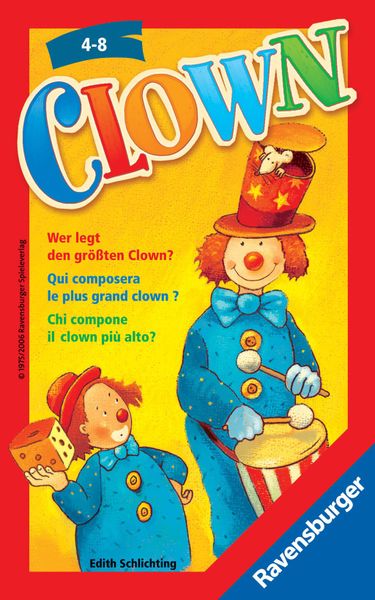Clown (1975) Board Game
Clown is a classic children’s board game that was first released in 1975 by Otto Maier Verlag. It was designed by Edith Schlichting and features artwork by G. Schmid and Hermann Wernhard. The game is known for its humor and dice rolling mechanics, making it a fun and engaging experience for players of all ages.
Game Components of Clown
How To Setup Clown
To set up the game, players start by understanding the basic rules outlined in the instruction manual. Each player receives a set of clown parts, and the dice is used to determine which parts can be added to the clown in each round. The game is prepared by shuffling the cards and ensuring each player has an equal starting point.
Gameplay Mechanics and Game Objective
– Dice Rolling: Determines which clown parts can be added.
– Card Drawing: Players draw cards to assemble their clown.
– Puzzle Assembly: Players assemble their clown using the parts from the cards and dice rolls.
– Players take turns rolling the dice and drawing cards to add to their clown.
– Each round allows players to add specific parts based on the dice roll and card draw.
– The player with the highest-scoring clown after 8 rounds wins.
Player Experience
The game provides a fun and interactive way for children to engage in puzzle-solving and creative assembly. The simple mechanics make it accessible for young players, while the variability in clown parts keeps the game exciting and different each time. It encourages fine motor skills, strategy in part selection, and basic math concepts through scoring.
Pros
Cons
Personal Thoughts on Clown
This game is ideal for young children looking for a fun, creative, and easy-to-understand puzzle game. It is a great way to introduce children to board games and help them develop essential skills like fine motor control and basic strategy. However, it may not appeal to older children or adults due to its simplicity and luck-dependent mechanics.
We are supported by our audience. When you purchase through links on our site, we may earn an affiliate commission, at no extra cost for you. Learn more.

